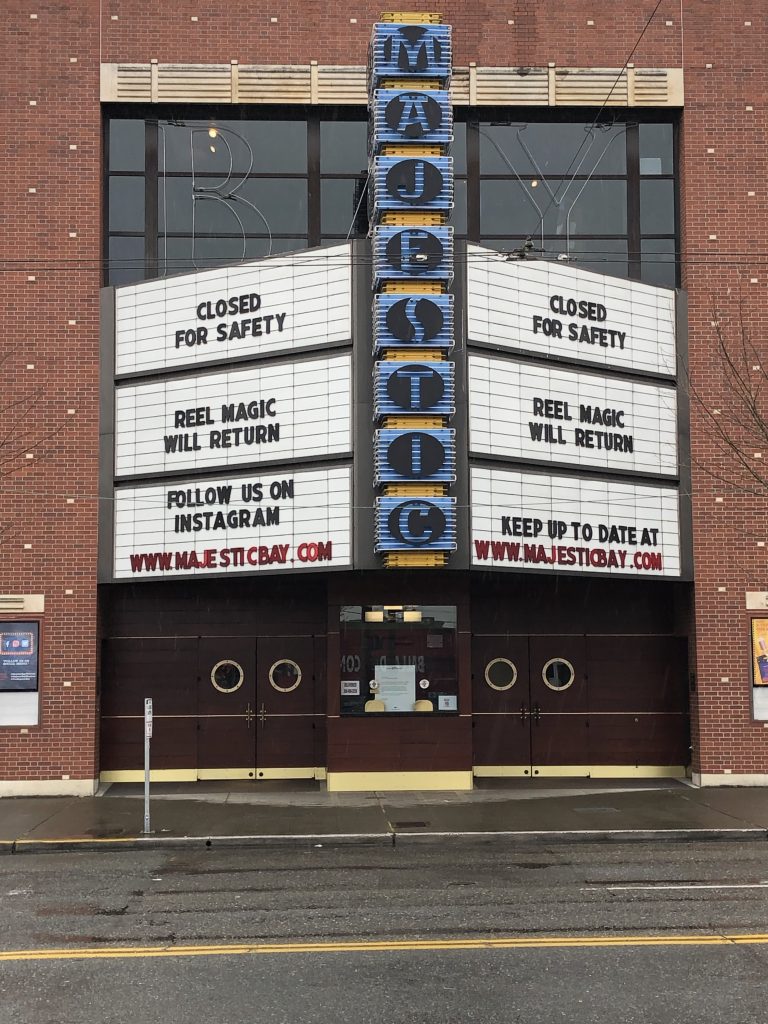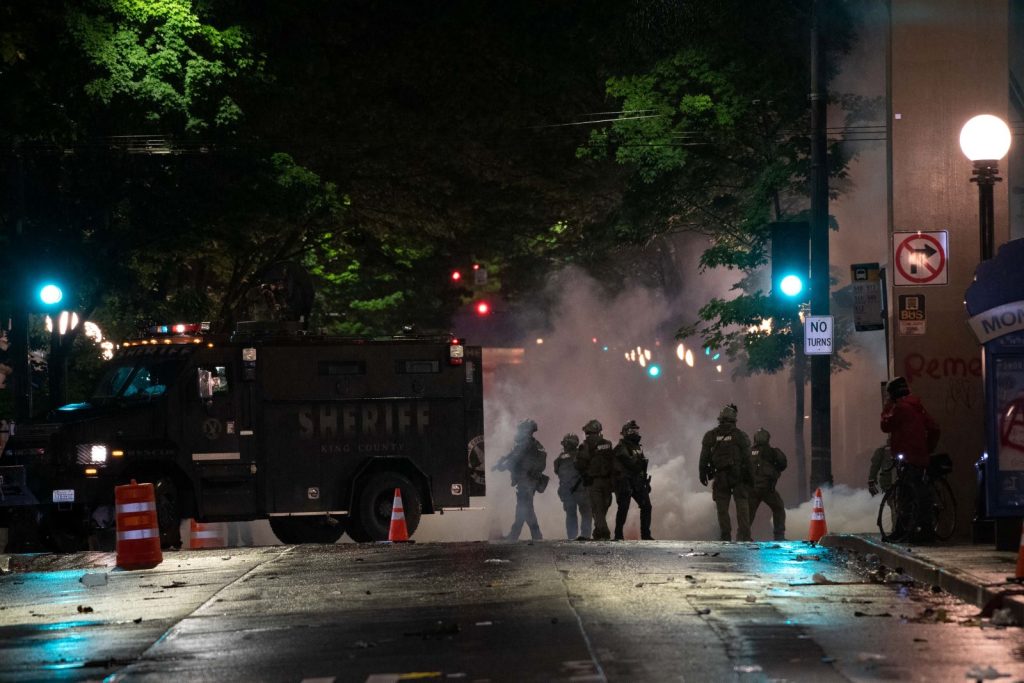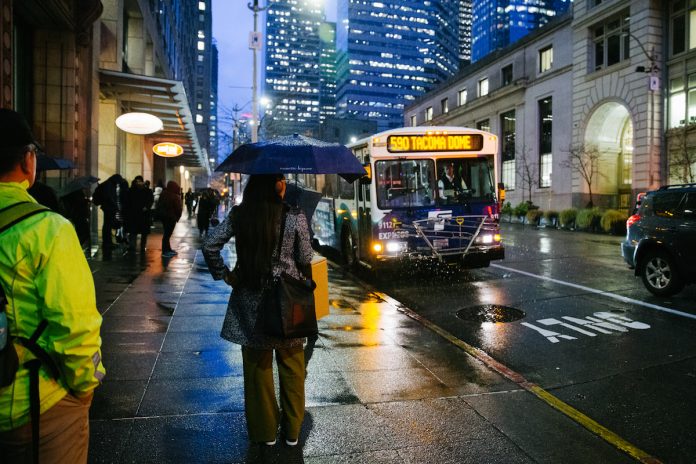Economists are trying to understand the separation between America’s pretty good economy and the dire national mood. The New York Times — The Daily podcast devoted an episode to efforting three new statistics that diverge from Wall Street. David Wallace-Wells (also in The Times) tried to trace the economic roots back to the pandemic. They were all fishing around for some vibe or another reason for the disconnect between the national malaise and the robust statistics. Perhaps there isn’t one.
Yes, the country feels dour, an emotion that goes much deeper than just economic pessimism. The feeling comes from a place where even the dismal science of economics cannot tease out with numbers. The economy would not show something as deeply human as mourning.
Now, I’ve spent some time this year suggesting that Seattle should be more optimistic. That particular point is, first of all, very place-based. Seattle revels in its moroseness and needs the occasional kick in the pants. The city wallows in performative bleakness. Your grunge flannels are tattered and the coffee’s gotten cold, go outside.
Second, searching for bright spots does not discount grief. Listing the things that make us a little happy can help define the losses that are causing real sadness. Wallace-Wells’ perspective shows a lot of economic places to be happy, then lumps the places to be sad together as “pandemic.” Mourning isn’t about the purchasing impacts of a virus, it’s about losing people and places that we can never get back.

The pandemic shattered a lot of human relationships. The top line is still countable, as 1,158,000 Americans have died from Covid. That is an astronomical number that exceeds the American death toll in any war fought by the United States. The second line is also countable, as divorce rates are still up since a lull in the depths of pandemic and marriages are only recently recovering to 2019 levels. Fertility rates are at rock bottom lows. I can say from my divorce experience of the last two years, that’s an ongoing source of pessimism.
There are also much less countable relationship ruptures. The oldest kiddo started high school this year, where I re-met a lot of parents for the first time in three years. The kids walked out of 5th grade elementary school in 2020 masked and socially distanced then spent the entirety of middle school in varying arrays of remote learning. Even while I was active in the PTA, I couldn’t get in the building. Now we show up with high schoolers, and I have to re-learn parent names for folks who were once daily hellos. It’s sad to think about relationships that could have been or have to be rebuilt.
And then, there is the family that we’ve had to cut ties with because they’re insane. The same Zooms and Tweets that kept us barely in touch with loved ones through the depths of lockdowns were also the pipelines for pumping out lies and propaganda. It’s a joke that we can’t go to Thanksgiving dinner with Uncle Earl due to his racist and anti-vax rants. It’s not a joke that we miss everyone except Uncle Earl.
That rupture of trust extends to our public spaces. I’m lucky that, as a large White dude (larger these days from pandemic stress eating), I can go through a lot of places unmolested. I’m even luckier that many of the places I go in wealthy, White North Seattle are very, very safe. But, it was not long ago — three years, during the pandemic — that one of our parks had a Hepatitis A outbreak from the unsanitary conditions at a homeless encampment.

There is no comparison between the justice and purposes of Black Lives Matter protests and the January 6th riot. The mostly peaceful BLM marchers asked for the most minimum of rights and human dignity. Contrast the Gravy Seals in ill-fitting Wal-Mart tactical costumes trying to undermine constitutional democracy. However, the mismatched police response, sensationalist television coverage, and political theater equating the two events broke something. Official responses to these protests and riots were also a breach of our trust in public places.
Then, there’s the little things. This week was the first time in three years I waited for the kids inside the building where their music lessons are held. During the pandemic, they took lessons over Zoom. In the first wave of re-openings, they masked inside while I had to wait outside the school. Without coffee shops or fast food places open, rainy nighttime lessons had me sitting alone in the car. Compare that to the before times, when waiting in the music hallway would have conversations with other parents or the joy of watching the pre-schoolers’ first dance lessons. Some of the smallest ballerinas I saw this week were not even born the last time I was in the building.
Missing those little things isn’t just a reminder of all the big things that have been lost. They add up to their own big thing that hasn’t been recognized. We had a moment of public grief when President Biden took office as the Mourner-In-Chief led remembrances on January 19, 2021. That was over a half-million Covid fatalities ago.
No, figuring out the despairing national mood is not a matter of plumbing the depths of economic numbers because this is not an economic issue. It’s an emergent issue. The little ruptures don’t add up to a single arithmetic total. They coalesce and become something different. The emerging national lament is more than the sum of the many, many, many little disruptions and failures and breaks and missed chances.
I am genuinely optimistic about the future and firmly believe that many important curves have started pointing in the right direction. There are real tangible improvements in the world where we live, the science we’re pursuing, and the future we’re building. Not the economy, that’s some cereal box philosophy insight to the human mind. That the economy is great and we’re so upset is actually one more rupture of trust to throw on the pile.
More importantly, I’m optimistic about the future because I’m sad. It’s hard to be a reasonable human in late stage capitalism, and the pandemic broke many of the tiny reprieves we got in our day. Whether it was the loss of a relationship or an easy conversation with a stranger or the seasonal cycle of birthday parties and dance costumes, they are lost moments that have added up to a tremendous deficit, something that warrants deep mourning. It’s not our responsibility to conform our feelings to the economy, particularly when we haven’t had a firm chance to understand the shape of our grieving yet. Only when that happens does anyone get to talk about true recovery.
Ray Dubicki is a stay-at-home dad and parent-on-call for taking care of general school and neighborhood tasks around Ballard. This lets him see how urbanism works (or doesn’t) during the hours most people are locked in their office. He is an attorney and urbanist by training, with soup-to-nuts planning experience from code enforcement to university development to writing zoning ordinances. He enjoys using PowerPoint, but only because it’s no longer a weekly obligation.


